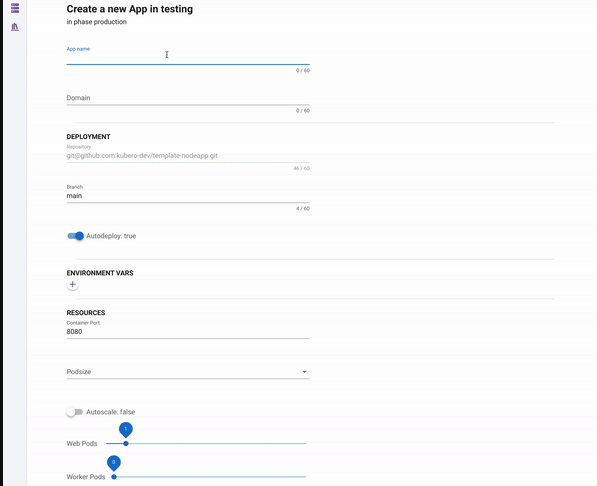Kubero: A Powerful Heroku Alternative for Your Development Needs
Kubero - Deploy Your Apps Easily with This Open-source Heroku Alternative
What is Kubero?
In the landscape of Internal Developer Platforms (IDP), Kubero stands out as a self-hosted solution that brings the streamlined workflows of Heroku to your Kubernetes cluster. Named as Kubero, our 'Kube Hero', this platform empowers developers to deploy applications in just a few clicks, creating a seamless and efficient development experience.
One of the most compelling features of Kubero is its built-in CI/CD pipeline. This inbuilt option eliminates the need for third-party tools, simplifying the deployment process and reducing potential points of failure. It also supports multiple staging environments, allowing developers to efficiently manage and test their applications in different settings.
The setup process is straightforward: create a pipeline with the phases you need, connect the pipeline to your Git repository (whether it's Github, Bitbucket, Gitlab, Gitea, or Gogs), and configure your apps with cronjobs and addons. Kubero takes care of the rest, initiating two containers: one for cloning your repository and another for building your app. Once the build is complete, Kubero launches the final container and makes it accessible via the configured domain.
Kubero also provides the ability to create unlimited CI/CD pipelines with up to four separate staging environments for all your applications. This feature is particularly beneficial for large or complex projects that require extensive testing and deployment processes. Plus, the platform automatically builds, starts, and cleans up review-apps after opening/closing a pull request, saving developers valuable time and effort.
Key Features
- Unlimited CI/CD pipelines: Kubero allows developers to create an unlimited number of CI/CD pipelines with up to 4 separate staging environments. This is particularly useful for large or complex projects that require extensive testing and deployment processes.
- Automated Review-Apps: The platform automatically builds, starts, and cleans up review-apps after a pull request is opened or closed. This feature saves developers valuable time and effort.
- Automatic Redeployment: Kubero automatically redeploys the app based on a push to a branch or tag, ensuring that the most updated version of the app is always in use.
- Cronjobs: Developers can schedule tasks as cronjobs, allowing for routine tasks to be automated.
- Templates for Known Apps: Kubero has templates for deploying well-known apps such as Wordpress and Grafana, simplifying the deployment process.
- Deployment without Helm Charts: Kubero allows for the easy deployment of Docker containers on Kubernetes without the need for Helm charts.
- Add-Ons for Applications: Kubero supports the deployment of add-ons for your application, such as PostgreSQL and Redis, further extending the functionality of your apps.
- Application Logs Access: Developers can easily access application logs in the UI, making it easier to troubleshoot and monitor app performance.
- Safe Application Restart: The platform allows for easy and safe restarts of the application in the UI.
- Vulnerability Scans: Kubero offers triggered or periodic vulnerability scans of your running apps, helping to maintain the security of your applications.
- API and CLI Integration: Comes with an API and CLI to integrate with your existing tools and CI/CD, enhancing workflow and productivity.
- Built-in Container Console: Kubero includes a built-in container console, making it easier to manage and interact with your containers.
- SSO with Github and Oauth2: Kubero supports Single Sign-On (SSO) with Github and Oauth2, simplifying the login process and enhancing security.
- Comes with +60 Prebuilt ready-to-use templates
- Similar Heroku button support
Supported Git services
- Gitea / Forgejo
- Gogs
- Github
- Gitlab
- Bitbucket
Add-ons
- MySQL
- PostgreSQL
- Redis
- MongoDB
- Kafka
- CouchDB
- Memcache
- RabbitMQ
- Elasticsearch
- Redis
- RabbitMQ
License
Kubero is an open-source project that is released under the GPL-3.0 License.
Resources & Downloads
Conclusion
In conclusion, Kubero offers a robust alternative to Heroku, providing all the tools and functionalities necessary for efficient app development and deployment. It combines the best of Kubernetes with the convenience of Heroku, making it a powerful choice for developers seeking a self-hosted IDP.
Kubero is Kubernetes native and runs with two containers on any Kubernetes instance.

